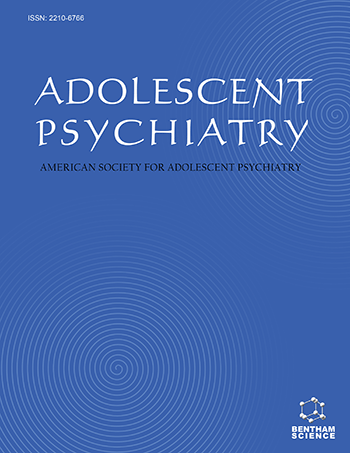Abstract
Background: Transitional Age Youth (TAY), the period between 15-25 years old, is now recognized as a unique developmental stage and a highly vulnerable time period for the onset of Serious Mental Illness (SMI).
Objective: The study aimed to inform readers about TAY with SMI to improve recognition of their developmental needs and improve patient care.
Methods: The authors describe their work with TAY experiencing SMI on inpatient psychiatric units by citing case examples that illustrate individual treatment issues, the level of family involvement in care, and social/systems based practice.
Results: TAY patients with SMI are more likely to adhere to ongoing psychiatric care when their developmental needs are addressed while in an acute inpatient setting.
Conclusion: Focusing on mental health needs of TAY while applying a developmental perspective can improve patient care and compliance to treatment.
Keywords: Transitional Age Youth (TAY), Serious Mental Illness (SMI), developmental perspective, biopsychosocial formulation, treatment issues, clinical case.
Adolescent Psychiatry
Title:Transitional Age Youth with Serious Mental Illness: High Acuity Patients Requiring Developmentally Informed Care in the Inpatient Hospital Setting
Volume: 8 Issue: 3
Author(s): Timothy Van Deusen*, Cynthia Wilson, Hyun Jung Kim, Zheala Qayyum, Hun Millard and Susan Parke
Affiliation:
- Department of Psychiatry, Yale School of Medicine, West Haven Mental Health Clinic, 270 Center St., West Haven, CT,United States
Keywords: Transitional Age Youth (TAY), Serious Mental Illness (SMI), developmental perspective, biopsychosocial formulation, treatment issues, clinical case.
Abstract: Background: Transitional Age Youth (TAY), the period between 15-25 years old, is now recognized as a unique developmental stage and a highly vulnerable time period for the onset of Serious Mental Illness (SMI).
Objective: The study aimed to inform readers about TAY with SMI to improve recognition of their developmental needs and improve patient care.
Methods: The authors describe their work with TAY experiencing SMI on inpatient psychiatric units by citing case examples that illustrate individual treatment issues, the level of family involvement in care, and social/systems based practice.
Results: TAY patients with SMI are more likely to adhere to ongoing psychiatric care when their developmental needs are addressed while in an acute inpatient setting.
Conclusion: Focusing on mental health needs of TAY while applying a developmental perspective can improve patient care and compliance to treatment.
Export Options
About this article
Cite this article as:
Van Deusen Timothy*, Wilson Cynthia, Kim Jung Hyun, Qayyum Zheala, Millard Hun and Parke Susan, Transitional Age Youth with Serious Mental Illness: High Acuity Patients Requiring Developmentally Informed Care in the Inpatient Hospital Setting, Adolescent Psychiatry 2018; 8 (3) . https://dx.doi.org/10.2174/2210676608666180820153318
| DOI https://dx.doi.org/10.2174/2210676608666180820153318 |
Print ISSN 2210-6766 |
| Publisher Name Bentham Science Publisher |
Online ISSN 2210-6774 |
 43
43
- Author Guidelines
- Graphical Abstracts
- Fabricating and Stating False Information
- Research Misconduct
- Post Publication Discussions and Corrections
- Publishing Ethics and Rectitude
- Increase Visibility of Your Article
- Archiving Policies
- Peer Review Workflow
- Order Your Article Before Print
- Promote Your Article
- Manuscript Transfer Facility
- Editorial Policies
- Allegations from Whistleblowers
Related Articles
-
A Comparison of Child Mental Health Systems in France and the United States
Adolescent Psychiatry Feasibility of Delivering a Cognitive Behavioural Therapy-Based Resilience Curriculum to Young Mothers by Public Health Nurses
Adolescent Psychiatry Assessing Personality Disorders in Adolescence: A Validation Study of the IPOP-A
Adolescent Psychiatry “Ride or Die”: Therapeutic Interventions for Retaliatory Violence Among Youth
Adolescent Psychiatry Proceedings of the Regional Conference of the International Society for Adolescent Psychiatry and Psychology (ISAPP), a Joint Conference with 18<sup>th</sup> National Symposium of Adolescent Mental Health, Ankara, Turkey, November 21-24, 2013<sup>1</sup>
Adolescent Psychiatry An Adolescent Psychiatrist Looks at the Story of Adolescent Addiction in The Basketball Diaries by Jim Carroll
Adolescent Psychiatry Should Adolescents be Screened for Depression?
Adolescent Psychiatry Vampires and Vamps: The Use of a Popular Metaphor in the Psychodynamic Understanding of Adolescent Conflict
Adolescent Psychiatry Management of Suicidal Adolescents Presenting to the Emergency Department
Adolescent Psychiatry Cyberbullying and Depression Among Adolescents in an Acute Inpatient Psychiatric Hospital
Adolescent Psychiatry Helping Parents Promote Healthy and Safe Computer Habits
Adolescent Psychiatry Adolescent Suicide and Suicide Prevention Programs: A Comparison Between Lithuania and Flanders
Adolescent Psychiatry Preventing Child and Adolescent Mental Illness - We Got This
Adolescent Psychiatry Juvenile Delinquency and Challenges of Child and Adolescent Mental Health and Juvenile Justice in Japan
Adolescent Psychiatry History of Psychiatry in the Dominican Republic
Adolescent Psychiatry Mental Health of Children of Immigrants and Ethnic Minorities in Europe
Adolescent Psychiatry Stuck Between Under and Overattunement: An Adolescent's Struggle with Attachment, Autonomy and Sexual Identity
Adolescent Psychiatry Childhood Psychiatric Disorders in North-India: Prevalence, Incidence and Implications#
Adolescent Psychiatry Self Destructive and Self Harm Behavior in Adolescence — An Integration of Dynamic and Empirical Psychological Models
Adolescent Psychiatry Treating Traumatic Stress in Children and Adolescents
Adolescent Psychiatry

























